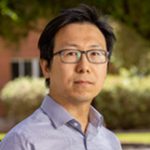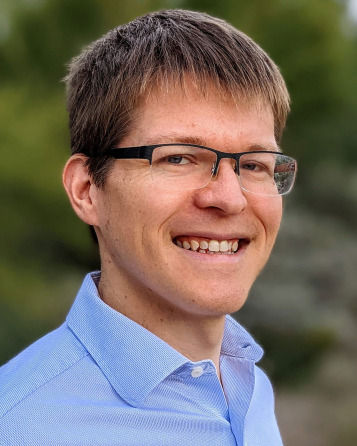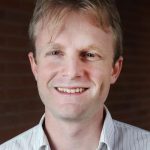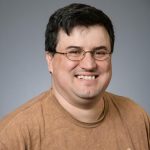Members
TAP Members
The TAP welcomes new faculty, postdoc, and student members. Member benefits include opportunities to participate in visitor program events, collaborative development of major funding proposals, events with colloquia speakers, and other ongoing TAP programs.
Theorists and theory students in the TAP member departments are strongly encouraged to participate in TAP Initiatives as these collaborations will be the source of future research directions and new funding proposals in addition to directing the TAP Visitor Program. In addition to theorists, experimentalists, and observers interested in expanding their research programs/proposals through collaborations with theorists are encouraged to apply for membership and participate in TAP Initiatives.
The aim is to expand UArizona’s strength in theoretical astrophysics and computational methods and build productive interdisciplinary collaborations across the member departments. To support this, membership is organized as follows:
TAP General Faculty:
Faculty in the Astronomy, Physics, or Planetary Sciences departments who lead research programs using theoretical and/or computational methods to study astronomical objects and/or astrophysical processes.
TAP Postdocs and Students:
Postdocs, graduate students, and undergraduate students who are working on research with a TAP General Faculty Member in Astronomy, Physics, and Planetary Sciences. TAP Students can apply for all program opportunities, including the annual Small Matching Grants and the TAP Student Research Prize.
TAP Partners in AST, LPL, and PHY:
Faculty, postdocs, or students from a TAP department participating in TAP Initiatives and interested in collaborative research efforts.
TAP Partners in Other Units:
Faculty, postdocs, and students from other departments or external organizations.
Apply for TAP Membership:
New member applications are reviewed regularly. New members will receive a confirmation email with member level and benefits.
TAP New Member Application
Complete the short application to become a TAP member.
Current TAP Members
TAP General Faculty Members
Faculty in the Astronomy, Physics, or Planetary Sciences departments who lead research programs using theoretical and/or computational methods to study astronomical objects and/or astrophysical processes.
| Erik Asphaug, Planetary Sciences |
| Travis Barman, Planetary Sciences |
| Peter Behroozi, Astronomy |
| Gurtina Besla, Astronomy |
| CK Chan, Astronomy |
| Kate Daniel, Astronomy |
| Keith Dienes, Physics |
| Tim Eifler, Astronomy |
| Carl Fields, Astronomy |
| Joe Giacalone, Planetary Sciences |
| Sam Gralla, Physics |
| Kris Klein, Planetary Sciences |
| Shuo Kong, Astronomy |
| Tommi Koskinen, Planetary Sciences |
| Kaitlin Kratter, Astronomy |
| Elisabeth Krause, Astronomy, Physics |
| Renu Malhotra, Planetary Sciences |
| Mark Marley, Planetary Sciences, Head |
| Isamu Matsuyama, Planetary Sciences |
| Fulvio Melia, Physics |
| Vasileios Pachalidis, Astronomy |
| Ilaria Pascucci, Planetary Sciences |
| Mathieu Renzo, Astronomy |
| Eduardo Rozo, Physics |
| Ina Sarcevic, Physics |
| Jerry Sellwood, Astronomy |
| Shufang Su, Physics, Head |
| Johann Rafelski, Physics |
| Sukrit Ranjan, Planetary Sciences |
| Tyler Robinson, Planetary Sciences |
| Andrew Youdin, Astronomy |
| Ann Zabludoff, Astronomy |
TAP Postdoc and Student Members
Postdocs, graduate students, and undergrad students who are working on research with TAP general faculty members in Astronomy, Physics, and Planetary Sciences.
| Joe Adamo, Astronomy, Graduate (Eifler) |
| Griselda Arroyo-Chavez, Astronomy, Postdoc (Kong) |
| Namya Baijal, Planetary Sciences, Graduate (Asphaug) |
| Avery Bailey, Astronomy, Postdoc (Kratter) |
| Jonah Barber, Physics, Graduate (Keith) |
| Leandro Beraldo e Silva, Astronomy, Postdoc (Daniel) |
| Haley Bowden, Astronomy, Graduate (Behroozi) |
| Zarah Brown, Planetary Sciences, Graduate (Koskinen) |
| Edgar Canizales, Physics, Graduate (Rozo) |
| Jose Daniel Castro Cisneros, Physics, Graduate (Malhotra) |
| Eonho Chang, Applied Math, Graduate (Youdin) |
| Heng-wei Chang, Physics, Graduate (Rozo) |
| Xiaohang Chen, Planetary Sciences, Graduate (Giacalone) |
| Marino Alejandro Chuquilin Fernandez, Physics, Undergraduate |
| Emmanouil Drimalas, Physics, Graduate (Youdin) |
| Ivan Espinoza, Physics, Graduate (Rozo) |
| Hayden Foote, Astronomy, Graduate (Besla) |
| Searra Foote, Planetary Sciences, Graduate (Robinson) |
| Nicholas Garavito-Camargo, Astronomy, Postdoc (Daniel) |
| Juan Garrido-Deutelmoser, Astronomy, Graduate (Kratter) |
| Nikhil Garuda, Astronomy, Undergraduate (Chan) |
| Aaron Goldtooth, Astronomy, Graduate (Eifler) |
| Waverly Gorman, Physics, Graduate (Klein) |
| Aldana Grichener, Astronomy, Postdoc (Jannuzi) |
| Elaheh Hayati, Physics, Graduate (Behroozi) |
| Devin Hoover, Planetary Sciences, Graduate (Koskinen) |
| Yu-Hsiu Huang, Astronomy, Graduate (Krause ) |
| Lori Huseby, Planetary Sciences, Graduate (Barman) |
| Soley Hyman, Astronomy, Graduate (Daniel) |
| Chia-Lin Ko, Astronomy, Graduate (Zabludoff) |
| Rahul Kumar, Physics, Postdoc (Gralla) |
| Genevieve Kuo, Astronomy, Graduate (Pascucci) |
| Yinquin (Heidi) Liu, Graduate (Gralla) |
| Jingwei Liu, Physics, Graduate (Melia) |
| Kunal Lobo, Physics, Graduate (Gralla) |
| Vikram Manikantan, Astronomy, Graduate (Paschalidis) |
| Ian Matheson, Planetary Sciences, Graduate (Malhotra) |
| Navin McGinnis, Physics, Postdoc (Su) |
| Robert Melikyan, Planetary Sciences, Graduate (Asphaug) |
| Morifumi (Mori) Mizuno, Graduate (Gralla) |
| Annie Moore, Physics, Graduate (Krause) |
| Ashraf Moradi, Planetary Sciences, Postdoc (Giacalone) |
| Matthew Murphy, Astronomy, Graduate (Advisor) |
| Maria Mutz, Physics, Graduate (Krause) |
| Mahdi Naseri, Astronomy, Graduate (Paschalidis) |
| Eleanor Puzzoni, Planetary Sciences, Postdoc (Federico) |
| Pranjal Rajendra Singh, Astronomy, Graduate (Krause) |
| Himansh Rathore, Astronomy, Graduate (Besla) |
| Tyler Reese, Planetary Sciences, Graduate (Giacalone) |
| Lily Robinthal, Planetary Sciences, Graduate (Robinson) |
| Thomas Routt, Astronomy, Graduate (Zabludoff) |
|
Marc Rovira Navarro, Planetary Sciences, Graduate (Matsuyama)
|
| Tanner Saadi, Physics, Graduate (Rozo) |
| Edgar Salazar, Physics, Graduate (Rozo) |
| Andres Salcedo, Astronomy, Postdoc (Krause, Rozo) |
| Arnaud Salvador, Planetary Sciences, Postdoc (Robinson) |
| Antranik Sefilian, Astronomy, Postdoc (Kratter) |
| Koushik Sen, Astronomy, Postdoc (Renzo) |
| Neev Shah, Astronomy, Graduate (Renzo) |
| Niranjana Shankarappa, Physics, Graduate (Klein) |
| Manpreet Singh, Planetary Sciences, Postdoc (Federico) |
| Maggie (M) Smith, Physics, Graduate (Paschalidis) |
| Amy Smock, Astronomy, Graduate (Daniel) |
| Shamvhavi Srivastava, Astronomy, Undergrad (Daniel) |
| Peter Stephenson, Planetary Sciences, Postdoc (Koskinen) |
| Yang Sun, Astronomy, Graduate (Zabludoff) |
| Tomomi Sunayama, Astronomy, Postdoc (Eifler) |
| Hina Suzuki, Astronomy, Undergrad (Chan) |
| Connor Sweeney, Physics, Graduate (Rozo) |
| Anna Taylor, Planetary Sciences, Graduate (Koskinen) |
| Tyler Trent, Physics, Graduate ( ) |
| Wolfgang Kurt Vallazza-Margl, Physics, Graduate (Su) |
| Jada Walters, Planetary Sciences, Graduate (Klein) |
| Erik Wessel, Physics, Graduate (Paschalidis) |
| James Windsor, Planetary Sciences, Postdoc (Robinson) |
| Jiachuan Xu, Astronomy, Graduate (Eifler) |
| Ningyuan Xu, Astronomy, Graduate (Chan) |
| Lin Yu-Chia, Physics, Graduate (Ewan) |
| Jackson Zariski, Applied Math (Kratter ) |
| Haowen Zhang, Astronomy, Graduate (Behroozi) |
| Xiaozhou Zhao, Planetary Sciences, Postdoc (Federico) |
TAP Partners in AST, PHY, LPL
Faculty, postdocs, and students from a TAP department and who are participating in TAP Initiatives and/or collaborating with theorists:
| Jeff Andrews-Hannah, Planetary Sciences |
| Daniel Apai, Astronomy |
| Xiaohui Fan, Astronomy |
| Alyson Ford, Astronomy |
| Brenda Frye, Astronomy |
| Richard Greenberg, Planetary Sciences |
| Pierre Haenecour, Planetary Sciences |
| Christopher Hamilton, Planetary Sciences |
| Lon Hood, Planetary Sciences |
| Ivan Hubeny, Astronomy |
| Buell Jannuzi, Astronomy, Head |
| Jozsef Kota, Planetary Sciences |
| Dan Marrone, Astronomy |
| Mihailo Martinovic, Planetary Sciences |
| Sumit Mazumdar, Physics |
| Alfred McEwen, Planetary Sciences |
| Peter Strittmatter, Astronomy |
| Timothy Swindle, Planetary Sciences |
| Rodger Thompson, Astronomy |
| Kathryn Volk, Planetary Sciences |
TAP Partners in Other Units
Faculty, postdocs, research scientists from other UA departments collaborating with TAP faculty
| Kobus Barnard, Computer Science |
| Bruce Bayly, Mathematics |
| Ali Berangi, Hydrology and Atmospheric Sciences |
| Misha Chertkov, Applied Mathematics |
| Laura Condon, Hydrology and Atmospheric Sciences |
| Solange Duhamel, Molecular and Cellular Biology |
| John Hartman, Computer Science |
| Kwan-Sung Jun, Computer Science |
| Tod Lauer, NOIRLab |
| Barney Maccabe, Institute for the Future of Data and Computing |
| Nirav Merchant, Data Science Institute |
| Edwin Skidmore, BIO5 Institute |
| Tyson Swetnam, BIO5 Institute |
| Xubin Zeng, Hydrology and Atmospheric Sciences |
| Helen Zhang, Mathematics |
TAP Initiative Chairs
Chair persons are leading the TAP Initiatives and the TAP Lectureship program and thereby interdisciplinary grant development efforts from the TAP Initiatives.
| Erik Asphaug, LPL, Planet Formation Initiative |
| Chi-kwan (CK) Chan, AST, Computation and Data Initiative |
| Ann Zabludoff, AST, Computation and Data Initiative |
| Andrew Youdin, AST, Planet Formation Initiative |
| Joe Giacalone, LPL, Plasma Physics Initiative |
| Shuo Kong, AST, Plasma Physics Initiative |
| Kate Daniel, AST, Dynamics Initiative |
| Peter Behroozi, AST, Cosmology Initiative |
| Eduardo Rozo, PHY, Cosmology Initiative |
| Kaitlin Kratter, AST, Dynamics Initiative |
| Sam Gralla, PHY, Gravity Initiative |
| Renu Malhotra, LPL, Dynamics Initiative |
| Vasilis Paschalidis, AST, Gravity Initiative |
| Kris Klein, LPL, Plasma Physics Initiative |
TAP Committees
The TAP Steering Committee meets regularly to develop and operationalize TAP activities. Positioned to head up new TAP developments, Initiative Leads form the Steering Committee.
The TAP Colloquia Committee develops the biannual colloquia series, and invites and hosts speakers.
Colloquia Committee
| Mathieu Renzo, Astronomy, Colloquia Committee |
| Sukrit Ranjan, Lunar & Planetary Laboratory, Colloquia Committee |
| Eduardo Rozo, Physics, Colloquia Committee |
Steering Committee
| Gurtina Besla, Astronomy, Steering Committee, TAP Chair |
| Chi-kwan (CK) Chan, Astronomy, Steering Committee |
| Joe Giacalone, Planetary Sciences, Steering Committee |
| Sam Gralla, Physics, Planetary Sciences, Steering Committee |
| Tyler Robinson, Planetary Sciences, Steering Committee |
| Eduardo Rozo, Physics, Steering Committee |
| Carl Fields, Astronomy, Steering Committee |
Steering Committee
The TAP is directed by a Steering Committee composed of six members and a chairperson with member representation equally distributed across the departments of physics, astronomy, and planetary sciences. The steering committee is responsible for making significant program decisions, including program funding priorities and allocations, selection of student prize recipients, new member applications, and general planning of annual program priorities and directions.
Gurtina Besla, TAP Chair
Associate Professor, Steward Observatory
Dr. Gurtina Besla’s research focuses on the formation and evolution of low mass dwarf galaxies. Through numerical simulations, Dr. Besla explores the impact of gravitational interactions on the observed properties of low mass galaxies in various environments.
Dr. Besla is a world expert in the study of the closest example of an interacting pair of dwarf galaxies, the Large and Small Magellanic Clouds.
Gurtina’s research on these galaxies has overturned conventional wisdom, illustrating that the Magellanic Clouds are likely recent interlopers in our neighborhood rather than long term companions to our Galaxy.
Carl Fields
Assistant Professor, Steward Observatory
Dr. Carl Fields, received his Ph.D. from the Michigan State University, in 2021. Dr. Fields is a theoretical astrophysicist who is broadly interested in computational and nuclear astrophysics of massive stars, their explosions and the multi-messenger signals they produce.
Dr. Fields helped create and develop MESA-Web, an online-based interface to the stellar evolution code MESA. Over the years, MESA-Web has been utilized by many classrooms around the world and has evolved over 10,000 stellar models to over 6,000 unique users. MESA-Web is now hosted and maintained by Rich Townsend at UW-Madison and is a valuable tool for astronomy education.
Chi-Kwan Chan
Associate Astronomer, Steward Observatory
Dr. Chi-kwan Chan (CK) is an Associate Astronomer/Research Professor at Steward Observatory, University of Arizona, and has been serving as the Secretary of the Event Horizon Telescope (EHT) Science Council since 2020. He recently led the publication of the computational and theoretical modeling/interpretation of our black hole, Sgr A*. Professor Chan created EHT’s computational and data processing infrastructure and continues to lead it to this day, along with EHT’s Software and Data Compatibility Working Group.
CK is a Senior Investigator of Black Hole PIRE, a leader of the Theoretical Astrophysics Program TAP, a Data Science Fellow, and a member of the Applied Mathematics Program.
Tyler Robinson
Associate Professor, Lunar & Planetary Laboratory
Dr. Tyler Robinson is an Associate Professor at the Lunar Planetary Laboratory, University of Arizona and received his Ph.D. in 2012 at the University of Washington. Dr. Robinson uses sophisticated radiative transfer and climate tools to study the atmospheres of Solar System worlds, exoplanets, and brown dwarfs. Tyler also develops instrument models for exoplanet direct imaging. He combines these areas of expertise in his work on the Habitable Exoplanet Observatory (HabEx) Science and Technology Definition Team, and in his contributions to the LUVOIR, WFIRST/Rendezvous, and Origins Space Telescope mission concept studies. Tyler is a Cottrell Scholar, as well as a former NASA Sagan Fellow and NASA Postdoctoral Program Fellow.
Kristopher Klein
Associate Professor, Lunar & Planetary Laboratory
Dr. Klein’s research focuses on studying fundamental plasma phenomena that governs the dynamics of systems within our heliosphere as well as more distant astrophysical bodies. He has particular interest in identifying heating and energization mechanisms in turbulent plasmas, such as the Sun’s extended atmosphere known as the solar wind, as well as evaluating the effects of the departure from local thermodynamic equilibrium on nearly collisionless plasmas which are ubiquitous in space environments. As part of this work, Prof. Klein is a co-developer of the Arbitrary Linear Plasma Solver (ALPS) numerical dispersion solver, an open source code used for quantifying the behavior of such non-equilibrium systems.
These systems are studied with a combination of analytic theory and numerical simulation, including large-scale nonlinear turbulence codes such as AstroGK, HVM, and gkeyll. These theoretical predictions are compared to in situ observations from spacecraft including NASA’s Wind, MMS and Parker Solar Probe mission, as well as the upcoming HelioSwarm mission, which will fly nine spacecraft between the Earth and moon to characterize the transport and dissipation of turbulent energy in space plasmas. By comparing theory with local plasma measurements, we aim to answer a variety of questions about the behavior of plasma in our solar system.
Sam Gralla
Associate Professor, Physics
Dr. Gralla works on a variety of problems in gravitational physics, plasma physics and astrophysics, with an emphasis on the regime where gravity and electromagnetism are strong. A unifying theme is that strong fields make for interesting physics and theoretical simplification that enables clean study of important processes.
Sam likes to work on problems that have both intrinsic interest and astrophysical application. Recent interests have included the two-body problem in general relativity, electromagnetic and gravitational self-force effects on the motion of bodies, strong-field (force-free) plasmas and quantum-electrodynamical corrections, and physics near rapidly rotating black holes.
Eduardo Rozo
Associate Professor, Physics
Dr. Rozo is an experimental cosmologist, utilizing large scale structure probes to better understand the physics behind the accelerated expansion of the Universe: that is, since gravity pulls, how is it possible for the expansion of the Universe to be accelerating? As of today, there are only two plausible solutions: either the energy budget of the Universe is dominated by a previously unknown form of mass—energy, or general relativity fails to be the correct description of gravity on cosmological scales. Resolving this dichotomy is the single most pressing question in observational cosmology today.
Eduardo’s research directly addresses this problem by utilizing the abundance galaxy clusters as a cosmological. His research exploits both photometric (e.g. Dark Energy Survey and Large Synoptic Survey Telescope), spectroscopic (Dark Energy Spectroscopic Instrument), and multi-wavelength data (Planck, South Pole Telescope, X-ray data from Chandra and XMM) to better understand this observational probe, and thereby safeguard against systematic uncertainties.
Colloquia Organizing Committee
Mathieu Renzo
Assistant Professor, Steward Observatory/Department of Astronomy
Dr. Mathieu Renzo, Assistant Professor at the Steward Observatory / Astronomy Department at the University of Arizona and received his Ph.D. in Amsterdam. Dr. Renzo is a physicist with interest in astronomy because of the wide range of phenomena and processes occurring astrophysical context. He focuses mostly on stellar astrophysics, and in particular massive stars, binary evolution, and stellar explosions. His research interest include stellar kinematics (runaway, “walkaway”, and hyper-velocity stars), core-collapse and (pulsational) pair-instability supernovae, X-ray binaries, time-domain and gravitational-wave astronomy. Mathieu mainly uses analytical and numerical simulations to understand massive star evolution, their explosions, and how they interact in binary systems. He uses both detailed stellar structure and evolution models (e.g., with MESA, and rapid population synthesis (e.g., with binary c or COSMIC). Mathieu is learning to run hydrodynamical simulations (with ATHENA++).
Eduardo Rozo
Associate Professor, Physics
Dr. Rozo is an experimental cosmologist, utilizing large scale structure probes to better understand the physics behind the accelerated expansion of the Universe: that is, since gravity pulls, how is it possible for the expansion of the Universe to be accelerating? As of today, there are only two plausible solutions: either the energy budget of the Universe is dominated by a previously unknown form of mass—energy, or general relativity fails to be the correct description of gravity on cosmological scales. Resolving this dichotomy is the single most pressing question in observational cosmology today.
Eduardo’s research directly addresses this problem by utilizing the abundance galaxy clusters as a cosmological. His research exploits both photometric (e.g. Dark Energy Survey and Large Synoptic Survey Telescope), spectroscopic (Dark Energy Spectroscopic Instrument), and multi-wavelength data (Planck, South Pole Telescope, X-ray data from Chandra and XMM) to better understand this observational probe, and thereby safeguard against systematic uncertainties.
Sukrit Ranjan
Assistant Professor, Lunar & Planetary Laboratory
Dr. Sukrit Ranjan is an Assistant Professor in the Lunar and Planetary Laboratory/Department of Planetary Sciences at the University of Arizona, and an Affiliate Research Scientist at BMSIS. He is a planetary photochemist, interested in using the interaction of molecular systems with energetic radiation as a lens to study life as a planetary phenomenon.
His research focuses on applying photochemistry to questions related to the origin of life on Earth and the search for life on other worlds. These questions are coupled: efforts to understand the origin of life on Earth helps guide our search for it elsewhere in the cosmos, while observations of other planets help us test our theories of the prebiotic environment and of abiogenesis. To understand abiogenesis, he works to constraining the palette of environmental conditions from which life arose on Earth, to constrain and guide experimental studies of the origin of life. To search for life elsewhere, he works to determine observational tests by which life on other worlds may be remotely discriminated. In collaboration with my experimental colleagues, he works to obtain the critical measurements of fundamental photochemical parameters required to build robust models in support of both goals.
In addition to research, he values outreach and education. He is a co-founder of the science communication workshop ComSciCon, an author emeritus for the science outreach blog Astrobites, and a research mentor for undergraduate students. He also gives public talks, writes popular science articles, and assists with community science outreach programs.








